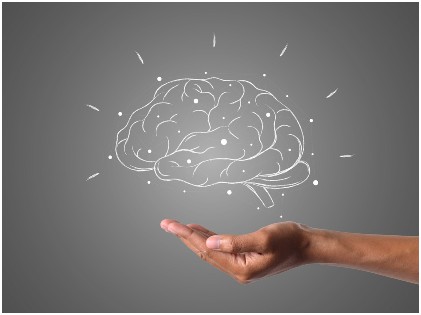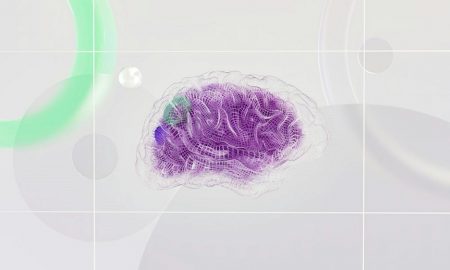
Why The Vagus Nerve Is So Important For Our Mental Well-Being

 In case you haven’t heard of the vagus nerve, it is the 10th or X cranial nerve in the human brain. This nerve, which contains parasympathetic fibers, runs from the brain, moving via the face, the thorax, and finally reaches the abdomen. The present health culture has put a growing amount of importance on this since it is the “key to well-being.”
In case you haven’t heard of the vagus nerve, it is the 10th or X cranial nerve in the human brain. This nerve, which contains parasympathetic fibers, runs from the brain, moving via the face, the thorax, and finally reaches the abdomen. The present health culture has put a growing amount of importance on this since it is the “key to well-being.”
There are substantial clinical evidence and research on VNS or vagus nerve stimulation using subcutaneous but ‘minimally invasive’ implants. Studies point to the fact that this works supreme in healing ‘intractable’ depressive states, as much as cases like drug-resistant epilepsy. Another research finding suggests that having varied modes of VNS has clinical efficacy as a treatment of rheumatoid arthritis.
Vagus Nerve and Mental Well-Being
Longest of all the nerves in the brain, the vagus nerve establishes communication with different body parts and thereby modulates the essential processes. A senior medical affairs manager at the LivaNova PLC, Dr. Steffen Fetzer, said that this nerve induces a relaxing response as the key pathway of the parasympathetic portion of the ANS or autonomic nervous system in the body. This is especially true when stressful situations arise. ANS is made of 2 divisions- while the SNS or sympathetic nervous system stimulates the body into action.
In other words, the ‘flight or fight syndrome, the PSNS or parasympathetic nervous system slows down heart rate, breathing and boosts digestion. The sensitive vagus nerve absorbs the information received from the body organs like lungs, intestines, kidney, liver, and heart. It sends it towards the brain, where interpretation and analysis occur. It is from the brain that the organs finally receive messages and all such commands.
What Is Vagal Tone?

To monitor how well the vagus nerve operates, the vagal tone or nerve activity shows the ratio between the sympathetic and parasympathetic signals. This is measuring using the electrocardiogram (ECG) to assess the patterns of the heartbeats. When you breathe in normal situations, the heart beats much faster to pump oxygenated blood all through the body.
Opposite to that, when breathing out, the heart rate becomes slower. It is here that the vagus nerve plays a key role in regulating the heart’s flexible nature for adapting to these circumstances. This phenomenon is better known as HRV or heart rate variability. When the vagal tone increases, it implies lower heart rate and better heart rate variability.
But as we age over the years, our vagal response decreases. Those who have a stronger vagal tone than others imply that they are far more relaxed and can respond to stress more calmly. Studies have also added that a strong vagal tone is associated with regulating blood glucose levels, which means risks of diabetes, strokes, and cardiovascular diseases are the bare minimum. On the other hand, a low vagal tone is a sign of concern for the nerve isn’t functioning well. This can produce a greater stress response that becomes chronic with time. As a result, anxiety, gut issues, depression, and inflammation become common.
Clinical VNS for Epilepsy
 Almost a third of epilepsy patients fail to respond to anti-seizure medications. Hence, the search for something better that would be a successful treatment has been in progress. Fetzer found that stimulating the vagus nerve is a better procedure to activate the essential brain regions without resorting to brain surgery directly. So, we can stress that epilepsy surgery would be the first option for drug-resistant patients.
Almost a third of epilepsy patients fail to respond to anti-seizure medications. Hence, the search for something better that would be a successful treatment has been in progress. Fetzer found that stimulating the vagus nerve is a better procedure to activate the essential brain regions without resorting to brain surgery directly. So, we can stress that epilepsy surgery would be the first option for drug-resistant patients.
Clinical VNS for Depression
A consultant psychiatrist at the Bradgate Mental Health Unit in Leicester, Dr. Girish Kunigiri, recommended VNS to patients who fought with depression. VNS being quite a new and expensive treatment, Kunigiri’s team suggests patients this surgery only when they are not responding well to other interventions.
His patients were part of a certain study that mapped their progress for more than five years. The results clearly showed that signs of improvement occurred 6 to 12 months after VNS implants were activated. The Vagus nerve is truly the key to one’s well-being. At least, that’s what the new Clinical VNS treatment seems to establish. If you have been battling depression or any other health issue, you should talk to your doctor and understand more about the Vagus nerve and its possible impact on your health.
More in Mental Health
-
`
Brain Computer Interfaces: Decoding Words From Brain Signals
In a groundbreaking development, scientists at Stanford University and the University of California, San Francisco, have unveiled two remarkable brain-computer interfaces...
December 11, 2023 -
`
Kourtney Kardashian and Travis Barker’s “Attachment Parenting”
In the glamorous world of celebrity news, there’s nothing quite as exciting as the arrival of a new baby. Kourtney Kardashian,...
December 8, 2023 -
`
The Effect Of an Emotional Relationship on Your Well-Being
Emotional relationships are a profound and essential aspect of our lives, encompassing connections with partners, friends, family, and even ourselves. These...
November 29, 2023 -
`
Navigating Generational Differences in Healthcare Preferences
In today’s diverse workforce, catering to different generations’ healthcare needs and preferences can be quite a challenge for employers. Healthcare benefits,...
November 15, 2023 -
`
What Is ‘Sharenting’ & What Is the Psychology Behind It?
In the age of the internet, where oversharing is practically a pastime, ‘sharenting’ is a term that has emerged as a...
November 11, 2023 -
`
Self-care for PTSD
In today’s modern world, with our diverse experiences, dealing with Post-Traumatic Stress Disorder (PTSD) is not uncommon. Coping with PTSD can...
November 1, 2023 -
`
Celebrities Who Love to Gamble
Celebrities often live a life of glamour, luxury, and extravagance, and it’s no surprise that some have a penchant for high-stakes...
October 29, 2023 -
`
Fall and Winter Illnesses | How to Be Prepared
As the days grow shorter and temperatures drop, we bid farewell to the warm embrace of summer and welcome the beautiful...
October 17, 2023 -
`
5 Ways to Talk to Your Kids About Friendship
Friendship is a crucial aspect of your child’s life. It is where they learn valuable social skills, build trust, and create...
October 13, 2023










You must be logged in to post a comment Login